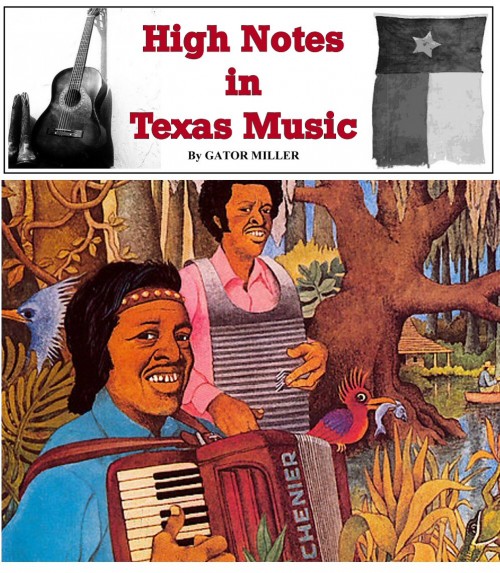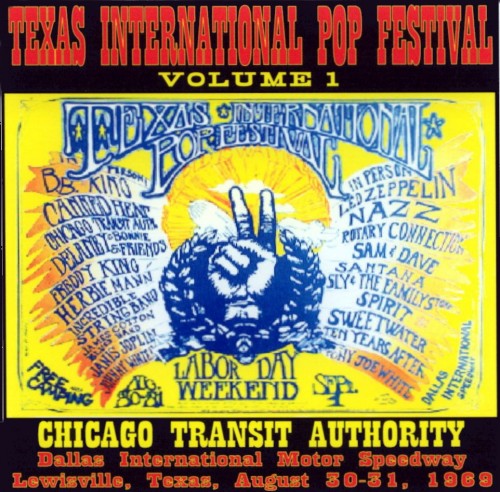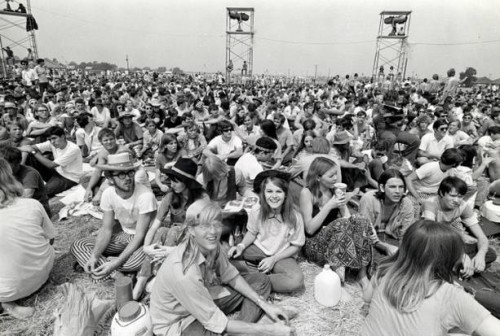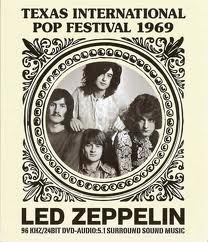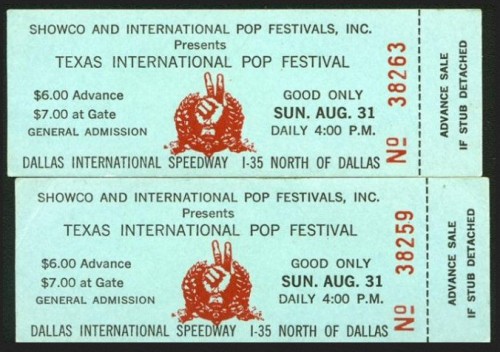About Gatorpress
Stands for truth and justice. GALVESTON AREA
GALVESTON AREA- Heavy police presence, major changes mark Jeep Weekend - Click2Houston ... Galveston County, Galveston County Sheriff, Sheriff Jimmy Fullen. BOLIVAR PENINSULA, Texas – The annual and unofficial “Jeep Weekend” on Crystal ...
- Big law enforcement presence leads to quiet Jeep Weekend, so far - Galveston County Daily News A Galveston County Sheriff's Office deputy is parked in the 6.2-mile event area in Crystal Beach for Jeep Weekend on Saturday, May 17, 2025.
- Good catches reported from Galveston | Reel Report | The Daily News The winds dropped across Galveston Bay, but still were holding onto a south/southwest direction. Not a great direction for the surf, ...
- Local businesses feel pinch as Jeep Weekend sees fewer visitors Galveston County Sheriff Jimmy Fullen said they have about 520 law enforcement officers on Bolivar Peninsula. "So far, we haven't had any major ...
- TX Houston/Galveston TX Zone Forecast | Weather | thefacts.com TX Houston/Galveston TX Zone Forecast for Saturday, May 17, 2025.
- Jeep Weekend 2025 kicks off under Galveston County sheriff's new plan. What to know. Jeep Weekend is here, and Galveston County Sheriff Jimmy Fullen is working with the Texas General Land Office and law enforcement agencies from ...
- Galveston County Sheriff's Office cracks down on Bolivar Peninsula with 'zero tolerance ... - KBMT Galveston County Sheriff's Office cracks down on Bolivar Peninsula with 'zero tolerance policy' during Jeep Weekend.
- Galveston County Sheriff's Office cracks down on Bolivar Peninsula with 'zero tolerance policy' duri Galveston County Sheriff's Office cracks down on Bolivar Peninsula with 'zero tolerance policy' duri. 8 views · 5 minutes ago ...more ...
- Texas housing market sours after homeowners are given bad advice - PressReader “Galveston is a lovely place,” Schwenk told the Houston Chronicle, “but we're not the Hamptons.” Why It Matters. Surging inventory across the Texas ...
- TX WFO HOUSTON/GALVESTON Warnings, Watches, and Advisories - The Huntsville Item WFO HOUSTON/GALVESTON Warnings, Watches and Advisories for Wednesday, May 21, 2025.
- Heavy police presence, major changes mark Jeep Weekend - Click2Houston
-
Recent Posts
- Dec. 6, 2024
- Dec. 4 2024
- Lake Jackson Cop Tyrant Loses His Job Over This
- The Bully of the Beach at Galveston & Bolivar Peninsula – Deputy Jack Walker
- Texas Female Cop Beats the Daylights Out Of Pregnant Woman, and Gets Away With It!
- Baytown Texas Cops Arrest Man For Parking Suspiciously, Three Officers Indicted
- I Went to the Texas City Buc-ees for gas – and THIS happened…
- Police Arrest Deaf, Blind Woman during Breakup – Freeport, TX
- Texas cop threatens to kill driver during traffic stop near Houston
- Texas Cops Arrest Diabetic Man For Eating in Parking Lot
- The Story of Otto the Watchdog
- Confronting Galveston Police Officer
- Kemah Safety Concerns
- Prison Guards Beat Woman Into Quadriplegic State, Get Off Scot Free.
- Republican Congressional Candidate Tries to Throw His Weight Around With Cop
- Child Sex Ring Busted At Church, Pastor Facing Life in Prison
- Pastor Molested 16 Year-old Church Member
- Tulia, TX: Police Frame Innocent Citizens on False Drug Charges
- Texas DPS is Corrupt From Top to Bottom
- MESSAGE FROM MY UNCLE IN EAST TEXAS:
- WHAT REALLY HAPPENED IN AFGHANISTAN:
- REPORT FROM EARTH #2:
- MEANWHILE, IN DICKINSON:
- Book of Martyrs: George Floyd
- TRAITORS SHOULD BE REMOVED FROM OFFICE.
- Ted Cruz Does Not Care About You.
- A FAREWELL TO TRUMP 11/23/20:
- HANG IN THERE, TRUMP! 11/22/20:
- THANKFUL FOR TRUTH IN AN ERA OF BIG LIES 11/22/20:
- ZOMBIE TRUMP WILL STAY AT THE HELM:
- TRAITORS IN MICHIGAN 11/17/20:
- Mayor comes home late, choked by husband
- COPLAND: Clear Lake Shores
- Gator’s Rant: Trump to meet with Putin
- Illegal Immigrants Returning To Mexico For American Jobs
- Flying Saucer crash at Roswell in 1947
- Trump Asked White House Janitor for “Loyalty” Oath
- Man Stabbed in Cavalier Manor
- A Gringo visits Mexico
- UFOs / Flying Saucers are in the immediate vicinity
- Make me laugh…
- Make me laugh & I will buy you a beer…
- Hands Off My Happy Hour
- Move over, asshole!
- Karaoke singer signs with Columbia Records
- I can’t feel right until these questions are answered about 9-11….
- Make me laugh & I’ll buy you a beer…
- Make me laugh & I’ll buy you a beer…
- Gator’s Rant: Stop Picking On Bullies
- Bad Sam’s Report: Dick Cheney’s bizarre actions on 9-11
- Make me laugh & I’ll buy you a beer…
- FBI Says Missing Teen Is Likely a Hooker By Now…
- Ken Lay Is Alive & Well…
- Make Me Laugh & I Will Buy You A Beer…
- It Really Happened…
- Clifton Chenier, The King Of The Bayou
- Gator’s Rant: coping with uncooperative sharks
- Great Moments in Texas Music – Lewisville, 1969
- Make Me Laugh & I Will Buy You A Beer…
- Ten Reasons the Official Story of 9-11 Can’t Be Trusted
- Know Your Rights!
- Bad Sam: Tax The Churches to Balance the Budget
- Coloring Contest: We Have A Winner
- Gator’s Rant: Cash Windfall, Advice to Writers
- Make Me Laugh & I Will Buy You A Beer
- It Really Happened…
- Gator’s Rant: Adopting A Mutt From The Doggie Jail
- Make Me Laugh & I Will Buy You A Beer
- It Really Happened…
- Gator’s Rant: It pisses me off when…
- Make Me Laugh & I Will Buy You A Beer…
- HOW TO GET ALL TORE DOWN AND HAVE A REAL BIG TIME…
- Unsolved Beach Death Update:
- Miniature Capsule Will Carry Deadly Germs Across The Universe
- Make Me Laugh…
- Make me laugh and I will buy you a beer…
- Electric Reliability Council Meeting Postponed Due To Power Outage
- My new career as a poet…
- Make me laugh and I will buy you a beer…
- Marijuana Shortage after Hurricane Sandy has Yankee Pot Dealers Driving South For Supplies
- Dickinson Man Calls 9-1-1 to report Domino’s Won’t Deliver to Him
- Where Did The Conservative Movement Go Wrong?
- What Now For Business Owners?
- The Official Story of 9-11:
- Prison For Sandcastle Artist
- Double Amputee Gunned Down By HPD Executioner:
- Make me laugh & I will buy you a beer…
- It Really Happened
- Drink like a manly man:
- Kiss my ass:
- It Really Happened…
- A soldier was given the job of hunting buffalo
- I ain’t had no fun in months
- Things That Piss Me Off
- Learn The English To Speak
- A blonde with two red ears
- A group of deer hunters were in camp
- A young man meets an attractive girl in a bar.
- Castro’s Buddy in Bacliff
- Thanksgiving Reality Check
- Bad Sam on the Federal Reserve scam
- It Really Happened…
- Wall Street Protesters Are Legitimate American Heroes
-

-
-

Category Archives: State
The Story of Otto the Watchdog
Royse City, Texas. The police there are ignorant, untrained, cruel, vindictive, and dangerous. Otto is detained and arrested without any probable cause. Police take him into custody and seize his property. Later, they seize his children and arrest him on charges of camping without having running water and electricity, alleging that it is child abuse. This king of abuse is becoming more common in the United States. I wish all of those people who like to stand up for the 2nd Amendment in this state would also stand up for the 1st Amendment, the 4th Amendment, and the 5th Amendment, all of which are under attack by police organizations that operate as armed criminal gangs. Officers like these are precisely why American citizens do not trust the police.
Posted in State
Comments Off on The Story of Otto the Watchdog
Illegal Immigrants Returning To Mexico For American Jobs
 PROTESTERS NEAR THE US-MEXICO BORDER
PROTESTERS NEAR THE US-MEXICO BORDER
As dozens of major American corporations continue to move their manufacturing operations to Mexico, waves of job-seeking Mexican immigrants to the United States have begun making the deadly journey back across the border in search of better-paying Mexican-based American jobs.
“I came to this country seeking the job I sought when I first left this country,” said Anuncio Reyes, 22, an undocumented worker who recrossed the U.S. border into Mexico last month, three years after leaving Mexico for the United States to work as an agricultural day laborer. Reyes now works as a spot-welder on the assembly line of a Maytag large-appliance plant and earns $22 a day, most of which he sends back to his family in the U.S., who in turn send a portion of that back to the original family they left in Mexico.
Like many former Mexican-Americans forced by circumstance to become American-Mexicans, Reyes dreams of one day bringing his relatives to Mexico so that they, too, may secure high-paying American jobs there.
Despite the considerable risk illegal immigrants face in returning across the border, many find the lure of large U.S. factory salaries hard to resist – these positions pay three times what Mexican jobs do.
There is an increasing motivation to return before the Trump administration constructs the proposed border wall. “When the wall is built, we will then be trapped in the United States, and have no way to get back into Mexico,” said Carla Benitez, an undocumented worker in Laredo; “So now the ‘coyotes’ who get paid to smuggle people across the border are making money both ways.”
The danger is very real. When 31-year-old illegal Texas resident Ignacio Jimenez sought employment at an American plant in Mexico, he was shot at by Mexican border guards as he attempted to illegally enter the country of his citizenship, pursued by U.S. immigration officials who thought he might be entering the country illegally, and he was also fired upon again by a citizens volunteer group called the Minutemen.
They eventually fished him out of the river and sent him back to his job washing dishes at TGI Friday’s in McAllen.
Strangely, the trend of illegal re-emigration is causing great resentment among the local Mexican population, and tension between Mexicans and illegally re-entered Mexicans – called “repatriados” – continues to build.
“I hate these Mexicans, always coming back here to Mexico from America and taking American jobs from the Mexicans who stayed in Mexico,” said 55-year-old former Goodyear factory manager Miguel Diaz, who says he lost his management job to a better-trained repatriado last March.
“Why don’t they go back to where they went to and leave our jobs alone?”
Clifton Chenier, The King Of The Bayou
GREAT MOMENTS IN TEXAS MUSIC: Clifton Chenier Invents Zydeco
“Louisiana ‘Bayou Land’ has produced some of the greatest talents…..Fats Domino, Pete Fountain, Louis Armstrong to name but a few. But out of this comes a man and his accordion. The blues, the lonely boy, Clifton Chenier. The only black man that can play a lily-white dance on Wednesday and a solid black dance on Thursday and pack them in each night.
Then from Frisco Bay to the European Folk Festival…. satisfying the young and rearranging memories for the old. Clifton is his own. When you hear his records anywhere you know it’s him….people don’t have to tell you. A very gifted man!”
So read the liner notes to Clifton Chenier’s ‘Bayou Soul’ LP, originally released on Crazy Cajun Records. It is a typical piece of folksy whimsy by label owner Huey P. Meaux – the “Crazy Cajun”. Notice there is no mention of zydeco music, but there is reference to Clifton’s multi-racial appeal, the blues influence, the dance aspect, and most precious of all, his very identifiable sound.
When most people think of Zydeco, they assume it is a kind of music which was created in Louisiana. With all due respect to our gumbo and crawfish eating neighbors, the fact is that Zydeco was invented in Texas, although the group of musicians who made it become popular were almost exclusively Cajuns, “Coonasses” and Creoles from “across the river“. Among these, the King of Zydeco, Mr. Clifton Chenier, is preeminent. Chenier was from Louisiana, but Zydeco was invented and popularized in hundreds of honky-tonk bars between Houston and Lake Charles in lower east Texas during the 1960s & 70s.
When Clifton Chenier and his band played at Johnny Land’s Club in Port Arthur in the 1950s, little old ladies and young girls would get up and dance ecstatically. Toes would be tapping at every table. Zydeco music was invented by accordion player Clifton Chenier after he first came to Texas just looking for a job to support his family.
In those days, when Creoles and Cajuns migrated from Southwest Louisiana they tended to go where the work was – and that wasn’t New Orleans. They went west to places in Texas like Port Arthur, Beaumont, Galveston, and Houston. In those days, the paying jobs were found in the refineries, and that’s where they landed. A few got lucky and found work around Lake Charles, but most of the jobs were in Texas. That’s why you don’t see very many Zydeco bands working in New Orleans – in fact, they’re only found in the tourist traps there. Zydeco music, with all of its’ Cajun roots, is primarily a southeast Texas phenomenon.
Born in Opelousas in 1925, Clifton was the son of a sharecropper and amateur accordion player, Joe Chenier, and the nephew of a guitarist, fiddler and dance club owner, Maurice “Big” Chenier. He literally learned to play the accordion on his father’s knee.
Young Clifton found his earliest influences in the blues of Muddy Waters, Peetie Wheatstraw and Lightnin’ Hopkins, the New Orleans R&B of Fats Domino and Professor Longhair, the 1920s and ’30s recordings by accordionist Amede Ardoin, and the playing of his own childhood friends, Claude Faulk and Jesse and Zozo Reynolds.
Acquiring his first accordion from a neighbor, “Easy” Blasa in 1937, Chenier was taught the basics of the instrument by his father.
By 1944, Chenier was performing in the dance halls of New Ibreia, while picking sugar cane by day to feed his family.
In 1946, he followed his brother Cleveland to Lake Charles. He absorbed a wealth of tunes from musicians such as Zozo Reynolds, Izeb Laza, and Sidney Babineaux, who, despite their talents, were never recorded.
The following year, Chenier traveled to Port Arthur with his wife Margaret, where he worked for the Gulf and Texaco refineries until 1954. Still playing music on weekends,
Chenier was “discovered” there by radio disc jockey J.R. Fulbright, who recorded him at radio station KAOK in Lake Charles, and issued a few records of those live sessions.
Chenier’s first national attention came from the first KAOK single, “Ay Tete Fille (Hey, Little Girl)”, a cover of a Professor Longhair tune, released in May of 1955.
The song was one of 12 that he recorded during two sessions produced by Bumps Blackwell, best known for his work with Little Richard.
By 1956, Chenier had quit his day job to devote full-time to music, touring with his band, the Zydeco Ramblers, which included blues guitarist Philip Walker. The following year, Chenier signed with the Chess label in Chicago.
In 1958, Chenier moved to Houston, and from here played packed shows all over the south. Although he toured with Etta James throughout the United States, Chenier’s career suffered when the popularity of ethnic and regional music styles began to decline.
He recorded thirteen songs between 1958 and 1960, but none of them charted.
During the 60s, Chenier played a major concert in San Francisco and recorded for a number of notable labels, including Argo and Arhoolie Records, in a bid to reach a wider audience. “Squeeze Box Boogie” became a hit in Jamaica in the 50s, but generally his style of music was not widely heard before the 60s.
The turning point in Chenier’s career came when Lightnin’ Hopkins’ wife, who was a cousin, introduced Chris Strachwitz, owner of the roots-music label Arhoolie, to his early recordings. Strachwitz quickly signed Chenier to Arhoolie, producing his first hit single in four years, “Ay Yi Yi”/”Why Did You Go Last Night”.
In 1976, Chenier recorded one of his best albums, Bogalusa Boogie, and formed the Red Hot Louisiana Band, featuring tenor saxophonist “Blind” John Hart and guitarist Paul Senegal.
Chenier reached the peak of his popularity in the 1980s. In 1983, he received a Grammy for his album “I’m Here!” recorded in eight hours in Bogalusa, Louisiana.
The following year, he performed for President Reagan at the White House.
Chenier crafted the definitive zydeco sound that still sets the standard. He did so by creating an artful blending of Creole folk with rhythm & blues.
Chenier adapted this material to the accordion and sang the lyrics in Creole French.
Beyond these innovations, Chenier’s skill as an accordionist has yet to be surpassed.
In later life, in addition to suffering from diabetes, he had part of his right foot removed due to a kidney infection in 1979. Although this prevented him from touring as frequently, Chenier continued to perform until one week before his death on December 12, 1987. Following his death, his son, C.J. Chenier, took over leadership of the Red Hot Louisiana Band.
Three generations of Chenier musicians have now made their mark in Texas. (GATOR)
Great Moments in Texas Music – Lewisville, 1969
August 30, 1969 – The Lewisville Pop Festival
Two weeks after Woodstock, Lewisville Texas hosted the Texas International Pop Festival (also called the Lewisville Pop Festival or the Dallas Pop Festival) on the grounds next to the new Dallas Motor Speedway. That was 44 Years ago, if you’re keeping score.
There was a nice lake up there, and it was a hot Labor Day weekend, so it was just natural for the early campers to practice the traditional Texas custom of skinny-dipping.
Word got back to the God-fearing Bible bangers in town, and they got all riled up about the naked hippies doing God Only Knows up at the lake. They called the Mayor, who was out of town in Colorado, and demanded that he take immediate action. Then they grabbed binoculars and hopped in their trucks to get a closer look at the flower children cavorting.
A few of the locals put their bass boats in the water. Ostensibly they were there to catch fish, but mainly they were out there to look at all the hippie chicks running around naked. Some of them were creepy enough to make lewd remarks and even make threats.
Rednecks turned out in pickup trucks, cruising around looking to grab a hippie and chop off his hair. Back then, they actually called it “taking scalps” and it was a real redneck hobby.
A delegation from the town went to the Lewisville Chief of Police, Ralph Adams, and asked him to get out there and bust a few heads and run off the hippies.
Bear in mind, this was the older folks talking. The young folks thought the music festival was wonderful. That was the problem, as the worried parents feared their kids might begin to grow long hair and espouse peace, move to California, take LSD, and then jump out of a window.
But the organizers of the event had covered their asses. They had hired Lewsiville Police Chief Ralph Adams to be their Chief of Security for the event. His resignation was pending with the city, and he was using his earned vacation time to work the event.
In any case, the hippies who attended weren’t there to fight. There was no serious trouble with the huge crowds who attended, although several local troublemakers were arrested.
The festival was extensively advertised through radio and newspapers and was promoted at Woodstock. Consequently, music enthusiasts from all over the United States, and even from foreign countries, poured into Lewisville to pay the admission fee of $6 a day.
Although the promoters anticipated a crowd of over 200,000, actual attendance for the three days was more like 120,000. The festival lost money, but was generally considered a success by those who attended. The promoters created a “carnival-like” atmosphere that featured booths catering to “flower-children.” Astrologers, painters, artists, craftsmen, leather workers, sellers of incense, T-shirts, jewelry, and candles; and food vendors all peddled their wares.
The opening act was a little-known band called Grand Funk Railroad out of Flint, Michigan. The band had just completed their first album, called “On Time”.
Janis Joplin took the stage in Texas for the first time since she became a star. The last Texas stage she had played on was at a little dive bar in Seabrook on open mike night. This time, she was overwhelmed by the welcome she received.
Sweetwater, who had been the first full band at Woodstock with their strange and wonderful sound, played what would sadly be one of their last gigs before lead singer Nancy Nevins would have her voice stolen in a wreck with a drunk driver.
B.B. King, who played all three nights, jammed with the amazing Johnny Winter at the free stage, close by the campgrounds. Wild Texas blues filled the nights by the lake.
And the music went on until Monday night, when Sly and the Family Stone closed the event appropriately enough with “Hot Fun in the Summertime.”
The lineup was even better than Woodstock had been two weeks earlier. Sam and Dave, Santana, Canned Heat, the Grass Roots, Chicago Transit Authority, Tony Joe White, Spirit, Ten Years After, Freddie King, and an unknown British rock band called Led Zeppelin also performed during the three-day festival.
Wavy Gravy and the Hog Farm served free food and counseled with anyone who might have forgotten that their acid-induced scene was only a movie. Ken Babbs, of Ken Kesey’s Merry Pranksters, ran the free stage. Security was handled by the “Please Force.” Every member of the audience was deputized.
Local musician Richard Rhea (Richard The Drifter) was there, fresh out of the Air Force, and says it was one of the greatest experiences of his life. “After being on active military duty, this was a complete 180 degree turn for me. It sent me spinning in a whole different direction.” he said, “It was an actual life-changing experience for me and I‘m sure for others.”

